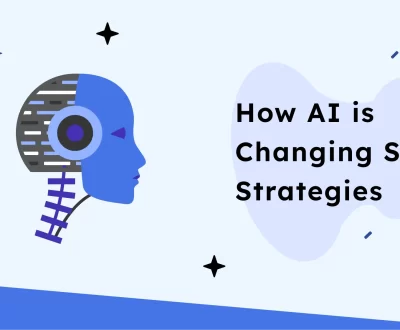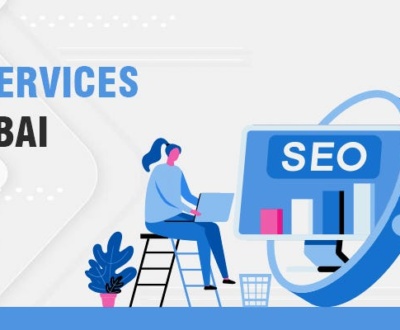It is always great to have an idea where the industry is headed in 2018 and plan your SEO moves around the new trends.
It’s already mid-January and it’s never too early to adapt to Google’s new changes and the expected (somewhat understood and predicted) trends of this year. Although the new updates are still fresh and most of them have not been yet completely understood, the new trends and Google’s new changes are very much being talked about and will impact your business’s online presence a great deal. Here are some of the most significant new changes that are bound to take effect in the coming weeks:
The Fake News Algorithm Updates Are Coming
Remember that time back in 2010 when Google was getting hammered in the media regarding the rising amount of “content farm” muddle in their search results, the negative press Google received from that ordeal was so impacting that they had no choice but to respond and not too long after the ever so famous Google Panda Update was released that specifically targeted spammy or low-quality content. Same thing has been happening to Google for the last year and a half for promoting fake news and the problem is so drastic that many analysts and industry experts have even termed it as “Google’s Biggest-ever search quality crisis” and it might just be true as well.
While the problem of differentiating between right and wrong news is a head scratcher but it is definitely one that has got people at Google getting their heads straight. Action has already been taken by Google in response to the bad press they have received including banning publishers who were responsible for promoting fake news ads, trying out now improved ways for users to report offensive autocomplete suggestions, tweaking their algorithms to devalue “non-authoritative information” (like the ones that deny true facts) and adding “fact check” tags to search results.
In 2015, Google’s researchers released a paper on KBT (Knowledge Based Trust), which highlighted a way to evaluate quality of webpages by analyzing their factual consistency and accuracy and not the number of inbound links. It is difficult to say that the program got implemented unsuccessfully or didn’t get much traction at all but one thing for sure, Google is interested in recognizing truthfulness as a ranking factor and never have they worked on the agenda as strongly as they are doing now.

Featured Snippets and Voice Search will Grow Side by Side
Voice search is already on the rise and has been so in the past couple of years. Today one in every five mobile based searches come from a voice powered search. This number is expected to rise as modern Google Assistant enabled devise like Google Home or a whole plethora of third party devices continue to grow in popularity. Featured snippets are expected to rise with voice searches as well because these are where Google often source their voice information from.
A study conducted for calculation the rise of snippets by Stone Temple Consulting last year revealed that this indeed is the case and a whole 30 percent of 1.4 million test searches they tested had snippets in search result. If growth in snippets continues to go forward in the same manner, they may even rival top organic listing telling SEO experts where to be if they want their websites to get the traction they wish.
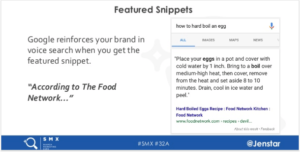

AI (Artificial Intelligence) to Power Many More Phases of Search
RankBrain, Google’s machine-learning AI system has been running for two years now and helps in processing search results. At its beginning, it was handling 15 percent search queries and went on to handle all of them later on. Google even go beyond RankBrain in their AI interests and has developed the ‘Cloud Vision API’ that is able to recognize a great number of objects ad their shapes and sizes.
Probably the biggest break through has been in Google building an AI that is better at building AI than us humans. Google Brain (a team that builds AI for Google) is responsible for this but unfortunately, AI is not perfect and has its flaws. AIs have a tendency to get stuck in the local minima and find their way to a “good enough” solution without being able to go beyond it to look for a better more efficient solution. Their tendency to confuse correlation with causation has also gotten them the name “superstitious” because they tend to draw connections in unrelated things. Since developers only do the programing for the machine-learning algorithm, their understanding on how the final versions operates is bleak causing even more difficulty predicting how it is going to behave, in traditional programs however, this was not the case.
We surely can expect more results to behave in much more less predictable ways as Google continues to qualify AI and implement it in more of their searches. This will not necessarily be a good thing but one that we should be prepared for this year. However, the one good thing to come out of this is that AI is not bound to change much for long-term SEO strategies. Since the whole purpose of machine-learning is to make predictions similar to how humans would, optimizing for it will be for the most part similar to optimizing for humans as well.

Manipulative Guest Posting Could Get under the Microscope
Google warned webmasters in May last year about the use of article marketing as a large-scale link building tactic being against their guidelines and could also result in a penalty and since the SEO community has already been well aware of this, Google coming out and announcing this on air can suggest there is an algorithm update just around the corner targeting manipulative guest posting. Webmasters should ask themselves whether what they are posting helps their users or readers and would they have done it the same if search engines didn’t exist. This is the easiest way of pointing out manipulative guest posting.
Guest posts are only worth it for two scenarios, they expand brand awareness by sending referral traffic or they will positively influence the search engine rankings. Anything other than that should be a strict “No go”. The worst part for going for that approach is that even that will not be fruitful at least in long term.

Mentions without Links
With Bing already confirming about them tracking unlinked brand mentions and using them as a ranking signal in their search results and also a reliable Google source claiming that Google is doing this as well, the fact is almost well understood. Many SEO experts have reconfirmed as well, adding authenticity to the fact.
With the role of AI increasing ever so much in the present times and the not so distant future to come, it is only fitting to expect “link-less” mentions like these ones to play a brighter role in search rankings. The maneuvers utilized to get brand mentions are pretty much the same as the ones utilized to earn links but keeping in mind that the number of people mentioning brand names is much higher than the ones linking to them in general, this new development could provide a much needed boost to smaller brands that used to fall below the threshold of earning press.
Of course, this truly highlights how important it is to get involved in discussions and conversations on the web for brands of all types or levels and also the significance of inciting those discussions or conversation yourself. As much web presence you have or good services you provide, more you will be mentioned on the web by your users or people in general.
Prepare for an Interstitial Crackdown
Google showed their intentions with the early 2017 mobile interstitial penalty that continued the fight against intrusive mobile ads. Some of the most penalized websites were the ones that had aggressive advertising without users being able to take any action about it, illusory advertising placement and/or other syntaxes that didn’t allow users to interact or interface at all by any way.
However, according to many SEO experts, the impact observed was rather underwhelming with not much being done at the front end of it all. Bigger more stable brands still found ways to get away with interstitial ads while smaller ones took the bigger hits. But speculations are that Google might be planning a bigger more impacting crack down on such websites sooner than you might think. The critical factor that seems to be attached with bigger more established brands is the amount of trust they might have accumulated in other ways. The ultimate deciding factor will be how Google will reward authentic branding vs intrusive advertising and things are still up in the air with signs showing intentions loud and clear.
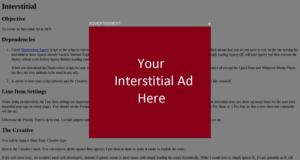
Mobile–First Indexing
Three years have passed since Google first announced that mobile searches had overtaken desktop searches in all categories and even more confirmation of this fact was provided in 2017 as many search giants claimed this to be true with around 60-40 percent division in mobile and desktop searches around the world. Google is doing the smart thing of responding to this shift in user behavior with mobile–first indexing.
This means that “Google will create and rank its search listings based on the mobile version of content on sites, even for listings that are shown to desktop users”. If this is not a sign enough for developers and content marketers then there will not be a great sign. Google representatives have even state on air that we can expect mobile–first indexing to launch official sometime this year. If you are running a website that is not mobile friendly or doesn’t shoe content as efficiently on mobile as it does on desktop devices, change that for the good.
Interpreting it further we can understand that in 2018, the signals that only used to impact searches for mobile devices can become signals that impact all searches across all platforms and devices. Sites that don’t work efficiently on mobile might soon become the dinosaurs of the past.
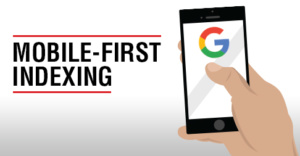
Get Ready for 2018
It is evident that Google has evolved a great deal since it first launched in the 1990s and even more so over the past decade or so. The dominance of AI, political climate everything works under, efforts and warning against manipulative guest posting and disrupting advertisement combined point towards the fact that a change is just around the corner. Instead of planning short term temporary SEO that gets instant but not lasting results should change to long term long lasting SEO that can get the job done for the times to come. It is fair to say that 2018 and all the years to come after it are getting competitive, stay on top of all the new trends and developments to stay ahead of the herd.
About us and this blog
We are a digital marketing company with a focus on helping our customers achieve great results across several key areas.
Request a free quote
We offer professional SEO services that help websites increase their organic search score drastically in order to compete for the highest rankings even when it comes to highly competitive keywords.
Subscribe to our newsletter!
Recent Posts
- How AI Is Reshaping SEO Strategies for UAE Businesses in 2025 April 10, 2025
- Top Tips to Help Small Businesses Find the Best SEO Agency in the UAE September 13, 2024
- How to Use AI Successfully to Elevate Your Onsite SEO Content Game in 2024 August 2, 2024

